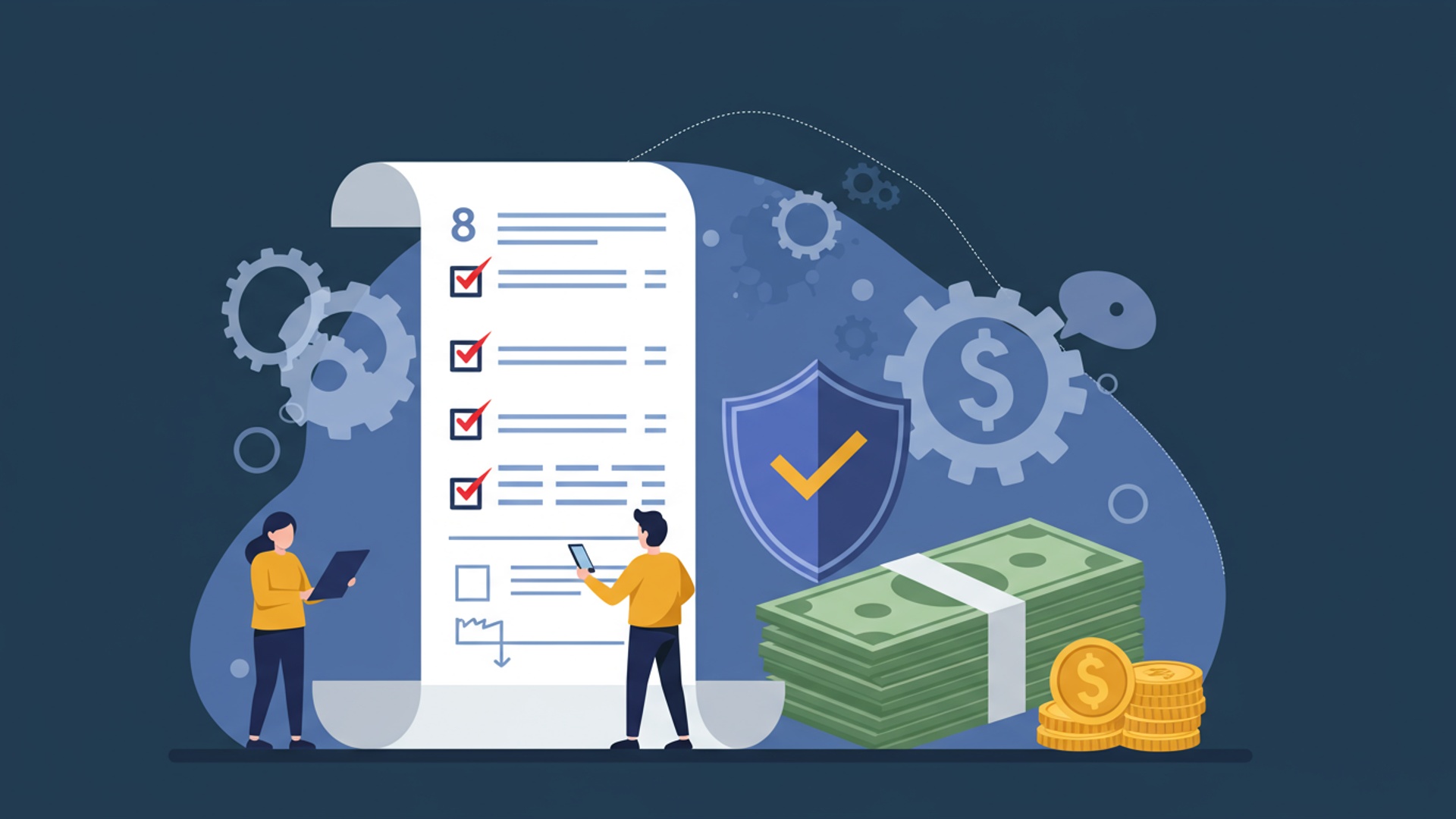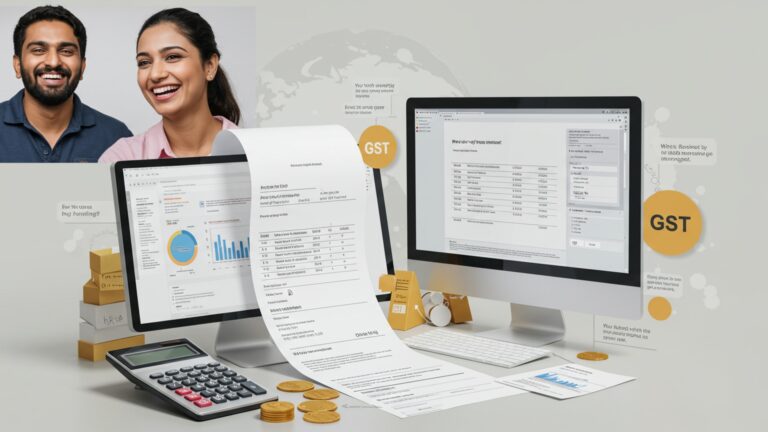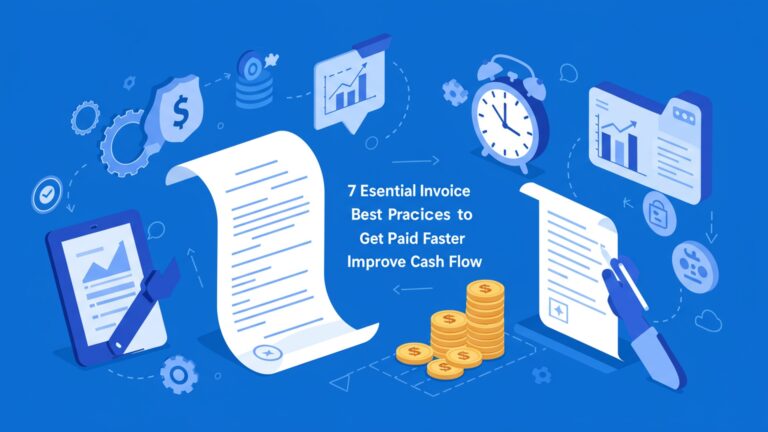8 Practical Ways to Prevent Billing Errors and Save Money
Billing discrepancies silently erode profits and damage client relationships, often costing businesses far more than just the immediate invoice adjustment. In today’s accelerated digital landscape, where transaction volumes escalate and complex subscription models prevail, even minor data entry mistakes or system misconfigurations can compound into significant financial drains. Recent advancements in automated financial reconciliation and AI-driven anomaly detection offer powerful new avenues, yet many organizations still grapple with reactive fixes rather than proactive prevention. Mastering the art of preventing billing errors now becomes crucial, not just for fiscal health but for maintaining operational integrity and customer confidence in an increasingly scrutinized marketplace. Implementing robust, systematic checks effectively saves substantial money and resources in the long run.

1. Master the Art of the Meticulous Bill Review
One of the most fundamental yet overlooked strategies to prevent billing errors and safeguard your finances is to regularly and thoroughly review every single bill you receive. This isn’t just about glancing at the total; it’s about diving into the details.
What is a “Line Item” Review?
A “line item” refers to each individual charge listed on your bill. For example, on a mobile phone bill, line items might include your base plan, data usage, text messages, international calls, device insurance, taxes. regulatory fees. On a utility bill, it could be kilowatt-hour usage, service charges, or environmental fees.
Errors can creep into any of these line items. You might be charged for a service you canceled, an old subscription you forgot about, or data usage you didn’t incur. Sometimes, promotional discounts expire without warning, or an introductory rate silently reverts to a higher price. Without a detailed review, these discrepancies often go unnoticed, costing you money month after month.
Consider the experience of Sarah, a college student. She noticed her internet bill suddenly jumped by $15. A quick look at the total might have just made her sigh. by reviewing the line items, she saw a “premium speed upgrade” she never authorized. A call to her provider quickly resolved the issue, saving her $180 a year and teaching her a valuable lesson about proactive bill checking.
- Set aside dedicated time each month to review bills.
- Compare your current bill against the previous month’s bill and your service agreement.
- Look for unfamiliar charges, changes in rates, or services you didn’t request.
- If you use online billing, download a PDF copy for easier review and record-keeping.
2. Decipher Your Service Agreements and Contracts
Before you sign up for a new service, whether it’s for internet, phone, streaming, or even a gym membership, you’re presented with a service agreement or contract. While it might seem tedious, understanding this document is crucial to prevent billing errors and unexpected charges down the line.
What’s in the Fine Print?
Service agreements outline the terms and conditions of your service. This includes:
- Pricing Structure
- Fees
- Cancellation Policies
- Usage Limits
- Automatic Renewals
Base rates, promotional periods. what the rate will be after promotions expire.
Activation fees, early termination fees, late payment fees, data overage charges. administrative fees.
How to cancel, notice periods. any associated costs.
Data caps, call limits, or other restrictions that could incur extra charges.
Many services automatically renew unless you explicitly cancel.
Comparison: Fixed-Term vs. Month-to-Month Contracts
| Feature | Fixed-Term Contract (e. g. , 12-24 months) | Month-to-Month Contract |
|---|---|---|
| Pros | Often offers lower monthly rates, bundled deals, or discounts on equipment. Predictable pricing. | Flexibility to cancel anytime without penalty, easier to switch providers, no long-term commitment. |
| Cons | Early termination fees can be substantial. Less flexibility to change plans or providers. Rates may increase after the initial term. | Generally higher monthly rates. Fewer promotional offers. Price changes can occur with shorter notice. |
| Risk of Billing Errors | Errors often stem from missed promotional end dates or incorrect early termination fees. | Errors more likely from unexpected rate hikes or miscommunication during cancellation. |
- Always read the entire agreement before signing. Don’t just skim.
- Ask questions about anything you don’t comprehend, especially regarding fees and cancellation.
- Keep a digital or physical copy of your contract for future reference.
- Set a reminder for when promotional periods end so you can re-evaluate your plan.
3. Maintain Ironclad Records of All Transactions
When it comes to disputing a billing error, your word against a company’s system often isn’t enough. Comprehensive record-keeping provides the undeniable evidence you need to back up your claims and effectively prevent billing errors from becoming costly losses.
What Records Should You Keep?
- All Bills and Statements
- Payment Confirmations
- Service Agreements/Contracts
- Correspondence
- Product/Service Specifics
Digital (PDFs) or physical copies.
Receipts, bank statements, credit card statements showing payments made.
As discussed in the previous section.
Emails, chat transcripts, or notes from phone calls (date, time, representative’s name, summary of conversation).
Screenshots of plan details, advertisements, or promotional offers you signed up for.
Use Case: The Power of Documentation
Consider the case of Michael, who canceled a streaming service. Months later, he noticed recurring charges. When he called the company, they claimed they had no record of his cancellation request. Fortunately, Michael had kept a screenshot of the cancellation confirmation email, complete with a date and confirmation number. Presenting this evidence immediately resolved the issue, getting him a full refund for the erroneous charges. Without those records, he might have been out of luck.
- Create a dedicated folder (digital or physical) for each service provider.
- Save all bills, payment confirmations. relevant communications.
- For phone calls, note the date, time, representative’s name. a brief summary of the discussion.
- Regularly back up digital records to a cloud service or external drive.
4. Harness Budgeting Tools and Apps
In the digital age, technology offers powerful solutions to help you track your spending, manage your finances. proactively prevent billing errors. Budgeting tools and apps can provide a clear, real-time overview of your financial activity, making it easier to spot irregularities.
Many modern budgeting apps connect directly to your bank accounts, credit cards. other financial institutions. They automatically categorize your transactions, allowing you to see where your money is going. This automation is key; it means you don’t have to manually input every expense, significantly reducing the effort required to keep tabs on your bills.
Technical Explanation: API Integration
These apps typically use Application Programming Interfaces (APIs) to securely communicate with your financial institutions. When you grant permission, the app uses the API to pull transaction data (e. g. , date, merchant, amount). This data is then processed and presented in user-friendly graphs and reports. Leading apps employ robust encryption and security protocols to protect your sensitive data.
Comparison: Popular Budgeting Apps
| App Feature | Mint (Intuit) | You Need A Budget (YNAB) | Personal Bank Apps |
|---|---|---|---|
| Cost | Free (ad-supported) | Subscription-based | Often free with your bank account |
| Focus | Comprehensive overview, net worth tracking, bill reminders. | Zero-based budgeting, “give every dollar a job.” | Account balances, transactions, basic spending categories. |
| Billing Error Detection | Good for spotting unusual transaction amounts or duplicate charges. | Excellent for reconciling accounts and noticing discrepancies. | Basic transaction review, may flag suspicious activity. |
| Ease of Use | Very user-friendly, automatic categorization. | Steeper learning curve but highly effective for disciplined budgeting. | Varies by bank, generally intuitive for basic tasks. |
- Choose an app that aligns with your financial goals and comfort level.
- Link all your relevant accounts (checking, savings, credit cards).
- Regularly review the transaction feed for any unfamiliar or incorrect charges.
- Set up spending categories and alerts within the app to monitor your budget.
5. Set Up Smart Alerts and Notifications
In our fast-paced world, relying solely on manual bill review can be challenging. Smart alerts and notifications act as your digital watchdog, providing proactive warnings about critical financial events and helping you to prevent billing errors before they escalate.
- Payment Due Reminders
- Usage Over-Limit Warnings
- Transaction Alerts
- Low Balance Warnings
- Subscription Renewal Alerts
Alerts from your bank or service provider for upcoming bill due dates, helping you avoid late fees.
For mobile data, electricity, or other metered services, these can prevent costly overage charges.
Notifications for every transaction, transactions over a certain amount, or international transactions on your bank or credit card accounts. This is crucial for catching fraudulent activity or unauthorized charges immediately.
To prevent overdraft fees.
Some services offer reminders before an annual subscription automatically renews, giving you a chance to cancel if needed.
Real-World Example: Avoiding Data Overages
Maria, a high school student, uses her phone extensively for school and social media. Her phone plan has a data cap. By setting up an alert with her mobile provider to notify her when she reaches 80% of her data limit, she can adjust her usage or purchase a small data top-up, effectively avoiding a much larger, unexpected overage fee that could appear on her next bill. This simple alert helps her to prevent billing errors related to usage.
- Visit your bank’s online portal or app to configure transaction alerts for your debit and credit cards.
- Check your mobile carrier’s website or app for data usage alerts.
- Enable notifications for bill due dates directly from your service providers or through a budgeting app.
- Consider using calendar reminders for annual subscriptions or contract renewal dates.
6. Master the Art of Questioning and Disputing Charges
Even with the best preventative measures, billing errors can still occur. Knowing how to effectively question and dispute an incorrect charge is a critical skill that empowers you to recover your money and hold companies accountable. This is where your diligent record-keeping (from Section 3) truly pays off.
- Gather Your Evidence
- Contact the Service Provider Directly
- Start with their customer service department.
- Clearly state the specific charge you are disputing, the amount. why you believe it’s incorrect.
- Refer to your records. For example: “On my bill from [Date], there’s a charge for [Service/Amount] that I believe is incorrect. My contract, signed on [Date], clearly states [Specific Term].”
- Note the date, time. the name of the representative you speak with. Ask for a reference or ticket number for your inquiry.
- Escalate if Necessary
- Follow Up in Writing
- Seek External Assistance
- Credit Card Company
- Consumer Protection Agencies
- Better Business Bureau (BBB)
Before making contact, collect all relevant records: the bill with the error highlighted, your service agreement, payment confirmations. any prior communication (emails, call notes).
If the first representative cannot resolve the issue, politely ask to speak with a supervisor or manager. Clearly explain that you’ve already discussed the matter and are seeking further assistance.
If the issue isn’t resolved verbally, send a written letter or email summarizing your dispute, attaching copies of your evidence. reiterating your desired resolution (e. g. , a refund, credit). This creates a formal record.
If the company is unresponsive or refuses to correct a clear error, you have options:
If the charge was on a credit card, you can dispute it directly with your card issuer. They have processes to investigate and often place a temporary credit on your account.
Organizations like the Federal Trade Commission (FTC) or the Consumer Financial Protection Bureau (CFPB) in the U. S. (or equivalent bodies in other countries) handle consumer complaints and can sometimes mediate or launch investigations.
You can file a complaint with the BBB, which can prompt companies to resolve issues.
The Consumer Financial Protection Bureau (CFPB) provides comprehensive resources on disputing billing errors, particularly for credit cards and bank accounts. Their guidance emphasizes the importance of written communication and understanding your rights under the Fair Credit Billing Act (FCBA).
- Don’t ignore suspicious charges; act promptly.
- Always be polite but firm when disputing.
- Keep meticulous records of all communications and outcomes.
- Know when to escalate internally and when to seek external help.
7. Explore Strategic Service Consolidation
Many households pay for multiple services from different providers: internet, cable TV, landline phone, mobile phone, home security. various streaming subscriptions. Consolidating some of these services, often through “bundling,” can not only simplify your billing but also help to prevent billing errors and potentially save you money.
What is Service Consolidation/Bundling?
Bundling is when a single provider offers two or more services together, often at a discounted rate compared to purchasing each service individually. For example, an internet provider might offer a “triple play” bundle that includes internet, TV. home phone service.
Comparison: Pros and Cons of Bundling
| Aspect | Pros of Bundling | Cons of Bundling |
|---|---|---|
| Cost Savings | Often cheaper than separate services. | May include services you don’t need or use. Discounts can be temporary. |
| Billing Simplicity | One bill, one payment date, one customer service contact. | If one part of the bundle has an error, it can affect the entire bill. |
| Convenience | Easier management, sometimes unified customer support. | Less flexibility to switch individual services if a better deal arises. |
| Preventing Errors | Fewer bills to track, reducing chances of missed payments or unnoticed charges. | Complex bundle pricing can make it harder to spot individual service overcharges. |
- Review all your current service providers and what you pay for each.
- Research bundle deals from your existing providers and competitors.
- Calculate if the bundled price genuinely offers savings compared to your current separate bills, taking into account any services you might not use but would be forced to pay for.
- Be mindful of introductory rates that expire. Ask what the price will be after the promotional period.
- Negotiate with your current providers; they might match competitor bundles to retain your business.
8. Leverage Technology for Ongoing Monitoring and Automation
Beyond initial setup and periodic reviews, technology offers continuous monitoring capabilities that are invaluable to proactively prevent billing errors. From automated bill pay systems to advanced financial monitoring services, these tools can provide an extra layer of defense for your wallet.
Many banks and credit card companies offer automated bill payment services. While this ensures bills are paid on time (avoiding late fees), it’s crucial not to set it and forget it. Always pair automation with review:
- Set bills to be paid a few days after they arrive, giving you time to review the e-statement before the payment is processed.
- Utilize your bank’s notification features to alert you when a bill is paid, so you can cross-reference it with your records.
While primarily focused on identity theft, credit monitoring services can also indirectly help catch billing errors that might impact your credit. For example, if a fraudulent account is opened in your name, or a legitimate bill goes unpaid due to an error and is sent to collections, credit monitoring can alert you to these negative marks on your credit report, prompting investigation.
Beyond general budgeting apps, some tools are designed for specific bill types:
- Energy Usage Monitors
- Subscription Trackers
Smart home devices and associated apps can track your electricity, gas, or water consumption in real-time, helping you interpret usage patterns and spot anomalies that might indicate a billing error or even a leak.
Apps like Trim or Truebill (now Rocket Money) identify and help manage your subscriptions, making it easier to cancel unwanted services and avoid recurring charges you’ve forgotten about.
Technical Insight: The Power of AI in Future Billing
As AI and machine learning become more sophisticated, we can expect even more advanced tools. Imagine an AI assistant that analyzes your past bills, identifies typical spending patterns. automatically flags any charge that deviates significantly from the norm. While not fully mainstream yet, these technologies promise a future where preventing billing errors could be even more automated and intelligent.
- Use your bank’s online bill pay. schedule payments with enough lead time to review statements first.
- Consider a credit monitoring service to catch broader financial discrepancies.
- Explore specialized apps to manage subscriptions or monitor specific utility usage.
- Stay informed about new financial technology that can simplify bill management.
Conclusion
Mastering billing accuracy isn’t just about preventing losses; it’s about building unwavering customer trust and fostering operational efficiency. By embracing integrated POS solutions, like those offering real-time inventory sync and automated reconciliation, businesses can significantly reduce manual errors that often plague traditional systems. I’ve personally witnessed how a robust system, even a seemingly simple upgrade, transformed a small retail store’s chaotic month-end into a smooth, error-free process, catching discrepancies instantly before they impacted customers. This proactive approach, fueled by modern technology and diligent staff training, means less time spent chasing down avoidable mistakes and more time focused on strategic growth amidst today’s dynamic market. Remember, every accurately processed transaction is a tangible step towards a healthier bottom line and a stronger reputation in our fast-paced digital economy. Invest in the right tools and empower your team; the financial rewards and invaluable peace of mind are truly worth it. For further insights on streamlining your operations, explore How to Optimize Your Billing Process Using Modern POS Software Solutions.
More Articles
A Practical Guide to Mastering Business Operations with POS Software
Boost Your Retail Profits How to Optimize Inventory Using POS Software
10 Essential Features for Restaurant POS Software India Success
How to Choose the Best POS Software for Your Grocery Store Business
FAQs
Why should I bother checking my bills every single month?
It might seem tedious. regularly reviewing your bills is crucial because even small errors can accumulate into significant losses over time. Catching mistakes early prevents bigger headaches and ensures you’re only paying for the services or products you actually used and agreed upon.
What’s the benefit of keeping my own records of purchases or service usage?
Having your own independent log – whether it’s a simple spreadsheet for utilities or a tally of subscriptions – provides a solid reference point to compare against your official bills. This makes it much easier to spot any discrepancies or charges that don’t align with your own tracking.
How crucial is it to actually comprehend my service contracts?
Extremely crucial! Knowing the terms, conditions. pricing structure of your contracts (like for internet, mobile, or insurance) empowers you to identify if a charge is legitimate or a mistake. You’ll know exactly what to expect and what definitely shouldn’t be on your bill.
Should I always dispute a billing error, even if it’s a really small amount?
Absolutely! Even a minor error can be a symptom of a larger system issue or an ongoing mistake that will cost you more down the line. Plus, disputing it promptly usually leads to a smoother and quicker resolution. Don’t let providers overcharge you, no matter the amount.
How can budgeting tools help prevent billing errors?
Budgeting apps or spreadsheets aren’t just for tracking spending; they help you monitor your expected expenses. If a bill arrives significantly higher than your budgeted amount, it acts as an immediate red flag, prompting you to investigate a potential error. They serve as an early warning system.
What’s a smart way to handle automated payments to avoid billing issues?
Automated payments are super convenient. don’t just set them and forget them. Always make sure to review the bill before the payment is processed. Most providers send bills a few days or even a week in advance, giving you enough time to spot and dispute an error before your money is automatically deducted.
What’s one quick tip for making sense of really complex bills?
Always ask for an itemized bill! This breaks down every single charge into individual line items. It makes it much easier to scrutinize each component, interpret exactly what you’re paying for. quickly pinpoint any incorrect or unexpected fees.






